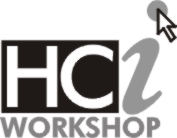|
The Overlap and the Gap |
|
Methods of human-computer interaction (HCI) design
affect software engineering (SE) significantly. Over half of today's
software is related to the user experience. Ignoring HCI may result in poor
use experience and effectively in poor software quality.
And vice versa. Software engineers are the first
consumers of the designs produced by user-experience professionals. The
design process that is not smoothly integrated in the engineering process
will produce unviable design, require rework and often produce inferior
quality products.
There are major gaps between the two communities today.
The architectures, processes, methods and vocabulary being used in one
community are foreign to the other. The two professions emerge from
different training, often with little overlap. Literature from each field
ignores the other.
In practice, however, the two fields must unite.
Seamless integration of SE and HCI processes will have a great influence on
the overall quality of a software product and the resources it takes to
create it.
|
|
The Focus |
|
In this workshop, we invite professionals and
researchers to share their experiences pertaining to one or more of these
areas:
Boundary objects:
Have you created and used objects that have crossed the boundaries of
professions? Did an interaction designer specify some use cases? Did a
software engineer read storyboards? How did you measure the impact of a late
breaking design change resulting from usability evaluation on the software
architecture?
Boundary techniques:
Have you improvised a technique from another profession to suit the needs of
your development process? Was an on-site business analyst also involved in a
contextual inquiry? How did you evaluate the proposed system architecture
for user experience? Did the quality assurance team conduct heuristic
evaluation during a code walk-through? How does a software project manager
accurately estimate the information architecture effort?
Indian business model:
How have you made HCI and SE work together in the context of distributed
development and off-shoring business model? How did you gather contextual
data while interviewing the users remotely? How did you convince the
'value-conscious' client to pay for an on-site usability test? How did you
resolve that tricky HR issue when a designer got hired in an engineering
team?
Share your experience through a case study, and you can
get to hear how others did it as well.
|
|
|
Goal |
|
The goal of this workshop is to create a venue for
practitioners and researchers from the two areas to:
-
Share experiences of working in the overlap and
attempts to bridge the gap
-
Provide an overview of the current research
-
Identify a research agenda and to plan future
initiatives
|
|
Call for Participation |
|
IT practitioners and researchers are invited to share
their experiences of working in the overlap (or gap, as the experience might
be) in the areas of SE and HCI.
The workshop will be open to those who have something
to share. To participate in this workshop, share a case study to
illustrate a problem or a solution in one or more of these areas:
-
Boundary objects that can be understood and used
by professionals from both HCI and SE.
-
Boundary techniques created by merging best
practices and techniques from HCI and SE that can be realistically used in
the industrial context.
-
Making it work in the Indian business model -
particularly distributed or offshore development.
Case studies co-authored by HCI and SE professionals
are preferred. Also personal experiences are preferred. To participate,
email a 300-word abstract of your case study by January 27, 2005 to: anirudha[at]iitb.ac.in
Participation in the workshop will be free (unless we
find a sponsor, participants may have to pay for contributory lunch).
|
|
Important Dates |
-
January 27, 2005 - 300 word abstract of case studies due
-
January 31, 2005 - acceptance notification
-
February 12, 2005 - the workshop
|
|
Proposed Contents and Schedule |
|
Time |
Activity |
| 9.00-9.30 |
Registration,
Introductions etc. |
| 9.30-11.00 |
Case studies |
| 11.00-13.00 |
Overview of HCI-SE
research |
|
14.30-16.00 |
More case studies |
|
16.00-17.30 |
Discussions, plan for action |
|
|
